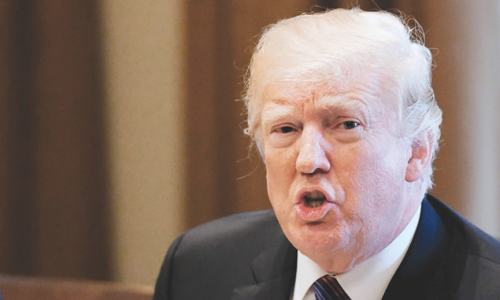Prime Minister Shahid Khaqan Abbasi, addressing the opening ceremony of the Boao economic forum in China's Hainan province on Tuesday, said regional connectivity, open trade and increased economic growth were the key to promote tolerance and deny space to extremism.
“In Pakistan today, step by step, brick by brick, a brave new Asia is taking shape,” he said.
The China Pakistan Economic Corridor (CPEC) is fast reaching fruition, said the PM, terming it an excellent example of an open, coordinated, and inclusive development paradigm that benefits all stakeholders. “We have already begun reaping dividends of CPEC rail, road and infrastructure projects. CPEC investment and its spin-off effects have generated thousands of jobs. 10,000 MW have been added to our national grid, ameliorating our chronic energy shortages.”
Read: CPEC master plan revealed
He said the development of the deep seaport of Gwadar was proceeding at a fast track, at the southern tip of this Corridor. "On completion, it would not only serve as a transit and transshipment hub, but become an economic nucleus."
"Pakistan's economy is growing 6 per cent annually," he said. "Over the medium-term, our growth rates are expected to surpass global averages. And by 2050, we will be the worlds fifteenth largest economy.”
Foreign Minister Khawaja Muhammad Asif, Interior Minister Ahsan Iqbal, Ambassador Masood Khalid and other senior officials also attended the event.
Boao Forum is a non-governmental and non-profit international organisation which was formally inaugurated in 2001. It aims to promote and deepen economic exchanges, coordination, cooperation within Asia, between Asia and other parts of the world.
Xi vows to further open China's economy

Chinese President Xi Jinping, in his keynote address at the event, pledged to take steps to further open the world's number two economy, indirectly addressing major complaints by the United States in a simmering trade row.
Xi promised a “new phase of opening up” and said that Beijing “does not seek a trade surplus” and hopes to increase imports.
He said China will take measures to liberalise automobile investment, significantly reduce tariffs on cars this year and protect intellectual property — all areas that have been high on the list of demands by Washington.
“Economic globalisation is an irreversible trend of the time,” Xi told the Boao Forum for Asia. "The door of China's opening up will not close; it will only open wider and wider.”
Xi pushed measures in areas that have been high on the list of US President Donald Trump's ire at China.
“When a car is sent to the United States from China, there is a Tariff to be paid of 2 1/2%. When a car is sent to China from the United States, there is a Tariff to be paid of 25%,” Trump tweeted on Monday. “Does that sound like free or fair trade. No, it sounds like STUPID TRADE — going on for years!”
Explore: Trump’s trade war
Without directly responding to Trump, Xi promised China would lower import tariffs for vehicles and other products, but he gave no details or an exact date for taking the measures.
Beijing's restrictions on foreign ownership in the auto sector have forced foreign companies to partner with Chinese firms and share their technology. Elon Musk, CEO of electric car giant Tesla asked for Trump's help on the issue this year, alluding to the troubles his firm has faced to producing in China.
Xi said those restrictions would be liberalised, pledging “to quickly relax restrictions on foreign shareholding, especially the restrictions on foreign investment in the automobile industry”.
Markets rally
Asia markets — hammered along with global equities by the trade row in recent weeks — rallied on the speech on Tuesday.
The threatened tariff war was spurred by a US Trade Representative investigation into China's intellectual property practices, which alleged wide-scale theft and forced technology transfers. Xi also pledged specific measures to address IP protection.
Related: Tech sector frets as US-China trade tensions simmer
“This year, we will reorganise the State Intellectual Property Office to strengthen law enforcement,” he told the forum, an Asian version of the World Economic Forum, which draws global leaders to its annual meeting in the Swiss ski resort of Davos.
“We encourage Chinese and foreign companies to carry out normal technical exchanges and cooperation to protect the legitimate intellectual property rights of foreign-funded enterprises in China,” he said.
Pledges on autos and IP were accompanied by a promise to push through reforms in the financial services industry, which would open up to more foreign participation — reforms first announced last year. Xi also spoke of building a more welcoming investment environment for foreigners by strengthening the rule of law and increasing transparency.
Xi's speech comes as the US and China have threatened tariffs on a large number of goods, bringing the world's two largest economies to the brink of a trade war.














































